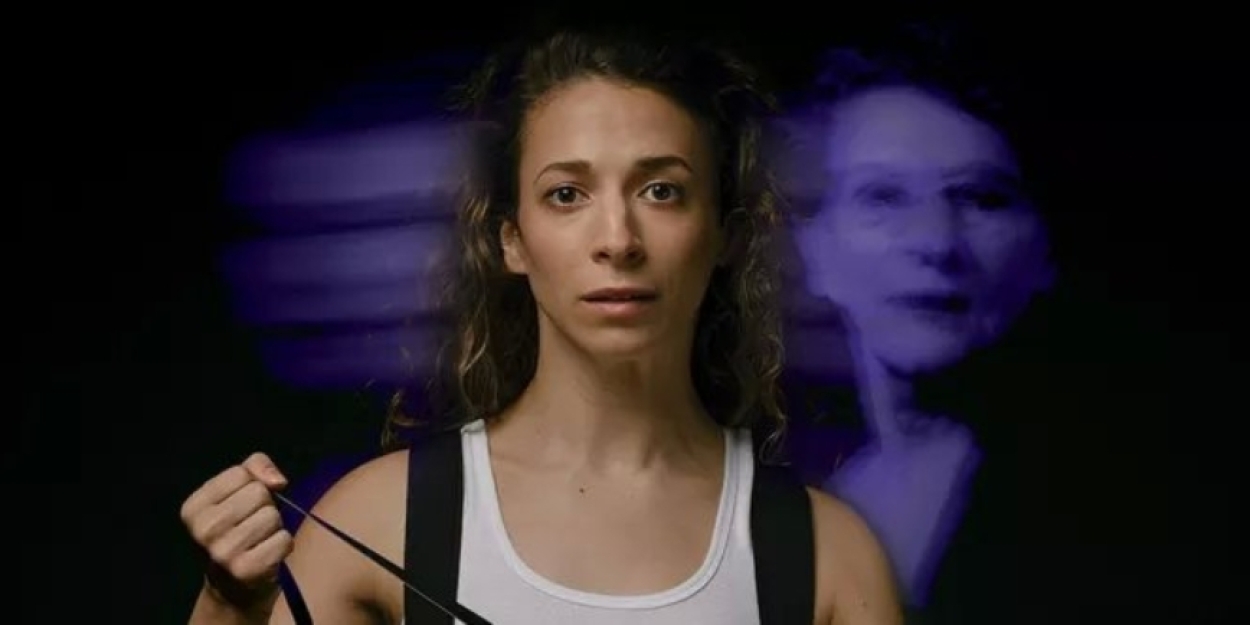REVIEW: YENTL Explores Gender Politics, Religion, Gender Identity and Sexuality In A New Adaptation.
YENTL is Now in Sydney

Saturday 19th October 2024, 7:15pm, Playhouse, Sydney Opera House
YENTL, Gary Abrahams, Elise Hearst and Galit Klas’ adaptation of Isaac Bashevis Singer’s Yentl the Yeshiva Boy, comes to Sydney following a successful Melbourne season. Directed by Abrahams, this new work honors the original, keeping the setting and styling bearing connections to its 1870 setting, while injecting Australian accents for observations and narrations.
Pitching the work as having feminist undertones and a queer subtext, Yentl is presented as somewhat of a fable, narrated by “The Figure” (Evelyn Krape), a mysterious minstrel jester which morphs into a ram-horned character that encourages and allows somewhat dubious decisions. Following on with the fable premise, all the performers also deliver their characters with a clownish white painted face with rouged cheeks shifting the story from being a possible reality to a mythic legend. The plot centers of Yentl (Amy Hack), a young Jewish woman who does not want to follow the usual fate for women of motherhood and housekeeping but would rather follow in her father’s footsteps to become a religious scholar but the culture and religion forbid women being educated. When her father dies, left orphaned, Yentl chooses to don her father’s clothes and leave town, passing herself off as Anshel, a man, so she can study but despite all of her efforts to avoid the swimming trips and other masculine activities that her new study partner Avigdor (Nicholas Jaquinot) tries to get her to partake in, she eventually finds herself betrothed to Avigdor’s former fiance and her close friend Hodes (Genevieve Kingsford).
Presented in English and Yiddish, with most of the Yiddish translated via surtitles, this work is relatively clear throughout. Dann Barber’s Set design is an artistic imagining of internal and external spaces with a dirt covered stage dominated by a corner segment of building which houses alcoves that reveal props along the way. A silk curtain that bears faint Hebrew script serves to allow for scene changes and separate the narrated thought and speculation from the dramatized story.
As Yentl, Amy Hack delivers a strong performance as the young woman that wishes she were born male so she were able to learn and study freely though it’s never completely clear whether Yentl would have retained her feminine identity if society and religion had not provided such a limited pathway for women. She balances the challenges of maintaining the deception well, ensuring that the audience see that Yentl’s thirst for knowledge is the driving force while also living in fear that her true identity will be discovered. She expresses Yentl/Anshel’s desire to not hurt the people she loves with an undertone of sensitivity below the contrived façade.
Nicholas Jaquinot gives Anshel’s best friend and scholarly companion Avigdor a masculinity that highlights the contrasts between Avigdor and Anshel whilst still having a degree of sensitivity in keeping with the plot line that has Avigdor rescue Anshel at the tavern they find themselves in after Anshel/Yentl leaves their hometown. Jaquinot expresses the traditional path for Jewish men that are allowed to enter a scholarly life while also exposing the restrictions that men can also face in terms of the expectation that they will marry, often by arranged marriages, and may be then subjected to their wife’s expectations as he is forced to abandon his studies. As Avigdor’s love interest Hodes, Genevieve Kingsford expresses the traditional Jewish female, conforming to society’s expectations that she marry and be a housewife. Kingsford ensures that Hodes’ innocence and naivety is clear while also expressing that she doesn’t harbor any greater ambition than following in the social expectation aside from the desire that her parents hadn’t terminated her first engagement to Avigdor. As “The Figure”, Evelyn Krape is an amusing storyteller and mysterious figure narrating and passing judgment on the tale. Krape has great physical presence and vocal variety which keeps the audience engaged and interested in where the bizarre story is leading.
With clear feminist sentiments that challenge the subjugation of women YENTL is a powerful commentary on rights and representation of women in the Jewish culture and religion. In terms of the Queer lens and whether Yentl would have chosen a masculine identity if she weren't restricted from following her passion of learning and knowledge, YENTL isn’t specifically clear though it does draw parallels with contemporary society that, despite progress, can still be judgmental towards those who’s honest self-expression is confronting and counter to society’s expectations.
https://www.sydneyoperahouse.com/theatre/yentl
Comments
Videos

